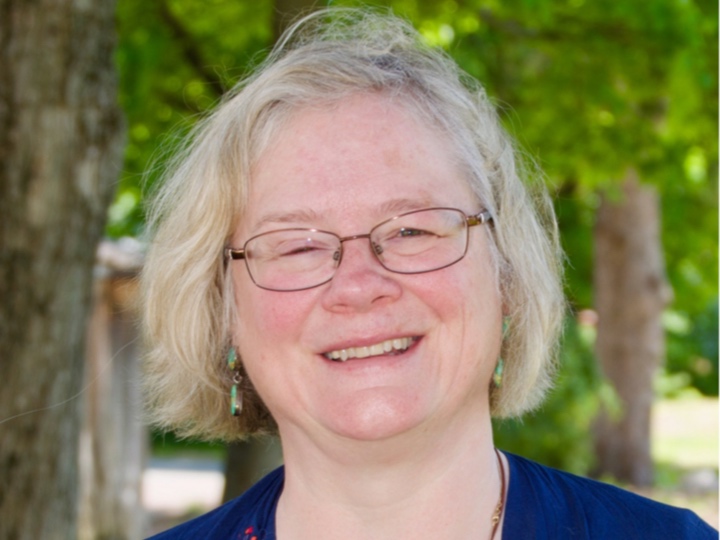Physics (if enough demand in 22-23)
Why study Physics?
Physics explains why physical objects behave the way they do. It is crucial for the design of cars, and computers, and high-rise buildings. Physics explains why and how your eyes can see and how your ears can hear. The efficiency of a swimming stroke is understood through principles of Physics. And, of course, Physics is the field that studies weather, astronomy, relativity and nuclear power. The three foundational sciences are Biology, Chemistry, Physics; without Physics, you are missing a huge chunk of the secrets of the universe.
Course summary
This high school course will explore the fundamentals of Physics. Our emphasis will be on gaining a good, solid grounding in the basics, using labs whenever possible, and lab simulations when necessary. We will work lots of problems as an integral part of our study. In addition to the labs done in class, students will do four lab experiments at Gordon College; these labs will most likely take place on Fridays, and are not optional. Lab dates will be made available at the start of the year.
This is an introductory physics class, focusing on the fundamental concepts of physics beginning with Newton's Laws which form the foundation of our study of one-dimensional motion as well as momentum, work, energy, and power. The second half of the class will focus on the physics that governs waves, electricity and magnetism, and light.
The class will be taught based on reading, class discussion, problem sets, and lab work. Physics is an exciting, living science and to this end I hope to engender an interest for these foundational concepts that govern how our world works.
In general, a student should be ready for this class if they have successfully completed one full year of Algebra 1. It is a good idea for students to have taken Biology first.
LABS: High school science classes at New Hope include labs and one September “skills day,” all of which contribute to the whole experience and qualify the class on transcripts as a full HS lab science course. We expect to schedule 4 to 5 Friday lab days. We believe the lab experience is a vital component of the overall course. As such, we consider the Friday skills day at New Hope and Friday labs to be mandatory. Please plan for these extra dates on your calendar (specific dates TBA by instructor by late summer).
Major Topics Covered
Mechanics: 1-dimensional motion; forces and Newton’s Law; work and energy; momentum
Waves: the nature of sound; light and its interactions; the quantization of light
Electricity and magnetism: electric and magnetic fields and forces; current and circuits; electromagnetic induction
Thermodynamics: heat and work; the Laws of Thermodynamics
Atomic physics: models of the atom; quantization of energy and quantum mechanics
Subatomic physics and particle physics (as time permits)
History and philosophy of physics/science: the important people and ideas behind the development of physics
Major Skills Developed
Comprehension: achieve an understanding of the basic concepts in physics, and be able to relate them to the real world.
Problem-solving: be able to read, understand, set up and solve a physics problem.
Lab skills: understand how a lab experiment is designed, and why.
Graphing: understand the importance of graphs in science, and be able to create a clear and correct graph from experimental data.
Note-taking: be able to take clear and complete notes from the textbook and in class.
Organization: develop a habit of keeping physics materials organized in a notebook.
Textbook
Glencoe Physics: Principles and Problems, by Zitzewitz, Haase, & Harper (c) 2017 McGraw-Hill
ISBN-13: 978-0-07-677476-0
Prerequisites and Admission
All: please complete an entrance Assessment Exam and Parent Questionnaire (both given at bottom of this course page). These help the instructor to prepare for your student in September.
Parent: please follow these steps to supervise this test:
1. Have a computer available to take the (online) test. Student should have plenty of scrap paper nearby and a pencil with a good eraser. A scientific calculator will be needed for some but not all of the questions. *Students must show all their work long-hand so that the instructor can see and evaluate their thinking process.*
2. Go through the entire test page by page (printed out, as there is no on-line option). If not sure of an answer, student can skip it and come back to work on it. This is not a timed test, however, it is reasonable to complete the test within a two-day period if an interruption is unavoidable.
3. Once the student has completed the test and is ready to send— we ask that the parent or proctor print out the entire test as a hard copy and send to us. (You may scan and send digitally, or mail via USPS.)
4. Please drop off to our office, or mail the entire test AS WELL AS ALL of the student’s scratch-work pages, to:
Ms. Becca Beaman
New Hope Courses for Homeschoolers
PO Box 96
Boxford MA 01921

